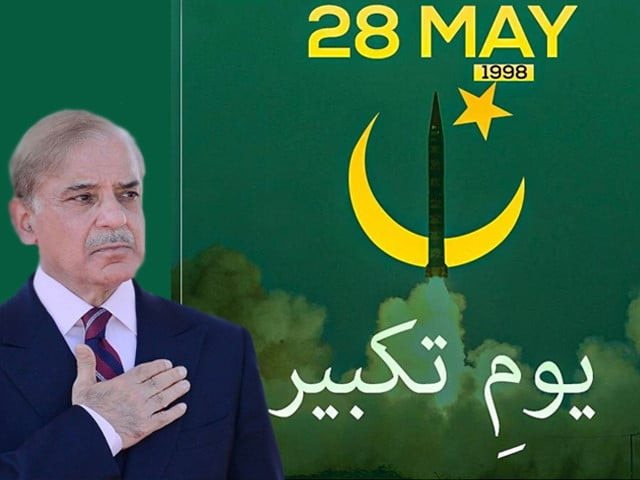The sudden announcement of a public holiday on May 28th, Youm-e-Takbeer, by Prime Minister Shehbaz Sharif has sparked a mix of reactions and speculations. Youm-e-Takbeer, commemorating Pakistan's triumphant 1998 nuclear tests, is a day drenched in national pride, marking the country's glorious entry into the exclusive club of nuclear-armed states. Declaring a public holiday to celebrate this day is a masterstroke of patriotism. Yet, one can't help but marvel at the impeccable timing of this announcement, raising a few eyebrows about the underlying intentions and the intriguing possibility of political manoeuvring.
In the realm of political strategy, timing is paramount. The recent declaration of a public holiday disrupts normal judicial functions just as the political landscape in Pakistan is at its most contentious. With high-profile cases against PML-N leaders (Al Aziza Steel Mill and Avenfield case) looming large, the ruling party's move to shift public focus to a day of national pride seems like a strategic attempt to overshadow ongoing legal proceedings and delay hearings. It's a clever tactic, but one that raises serious concerns about the integrity of the judicial system and the rule of law.
This approach can be seen as egotistical because it places the leader's image above the well-being of the nation. By leveraging a historic event to gain political favour, the prime minister appears to prioritise personal and political legacy over the collective interests of the people. It reflects a self-centred leadership style that seeks validation and recognition through symbolic gestures rather than substantive governance. The public holiday, in this context, becomes less about honouring a national achievement and more about constructing a narrative of grandeur around the current administration.
The sudden declaration also hints at a deeper issue within the political culture of Pakistan—where symbolic gestures often take precedence over substantive policy decisions. This culture of optics-driven governance can be detrimental, as it diverts attention from pressing issues that require immediate and sustained focus. By announcing a holiday, the government might temporarily evoke a sense of nationalism, but it does little to address the underlying challenges facing the country, such as economic instability, security concerns, and social inequities.
Economic analysts highlighted the detrimental effects of an additional public holiday on the economy, citing that even a single holiday can result in a loss of $1.1 billion to $1.3 billion annually, impacting the national economy significantly.
Furthermore, the arbitrary nature of this decision undermines the planning and organisation required for public holidays. Businesses, educational institutions, and public services are all affected by such sudden announcements. The lack of prior notice disrupts schedules and operations, causing inconvenience and potential financial losses. A responsible government would consider these factors and engage in a more transparent and consultative process before making such declarations.
Additionally, the move could be perceived as an attempt to consolidate power and control over national narratives. By choosing to celebrate a historical event linked to national security and pride, the PM and his party may be seeking to rally public sentiment in his favour, thereby diverting attention from his administration's shortcomings. This tactic of leveraging nationalism to maintain political dominance is not new, but it raises questions about the authenticity of the government's commitment to the values it professes to uphold.
The sudden public holiday is a calculated move with political undertones. While the day itself holds significant historical importance, the timing and abruptness of the announcement amidst ongoing legal proceedings against PML-N leaders indicate a potential strategy to delay these hearings and shift public attention. The decision to declare Youm-e-Takbeer as a public holiday raises questions about the precedent it sets. If holidays can be declared abruptly, potentially disrupting crucial national functions, it introduces a level of unpredictability and instability into the system.
While national pride and historical remembrance are important, they should not be used as tools for political gain. The integrity of the judicial process is paramount in a functioning democracy, and any actions that appear to undermine this integrity should be critically examined. Such actions highlight the intricate interplay between political strategy and national governance, raising important questions about the motivations behind governmental decisions and their implications for justice and public trust.



COMMENTS
Comments are moderated and generally will be posted if they are on-topic and not abusive.
For more information, please see our Comments FAQ